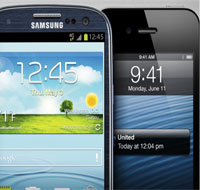10 Aug 2012 - {{hitsCtrl.values.hits}}
 Google may have kept a low profile amid the legal clashing between Samsung Electronics and Apple, but the company hasn't abandoned its Android partners.
Google may have kept a low profile amid the legal clashing between Samsung Electronics and Apple, but the company hasn't abandoned its Android partners.
26 Dec 2024 2 hours ago
25 Dec 2024 25 Dec 2024
25 Dec 2024 25 Dec 2024
25 Dec 2024 25 Dec 2024